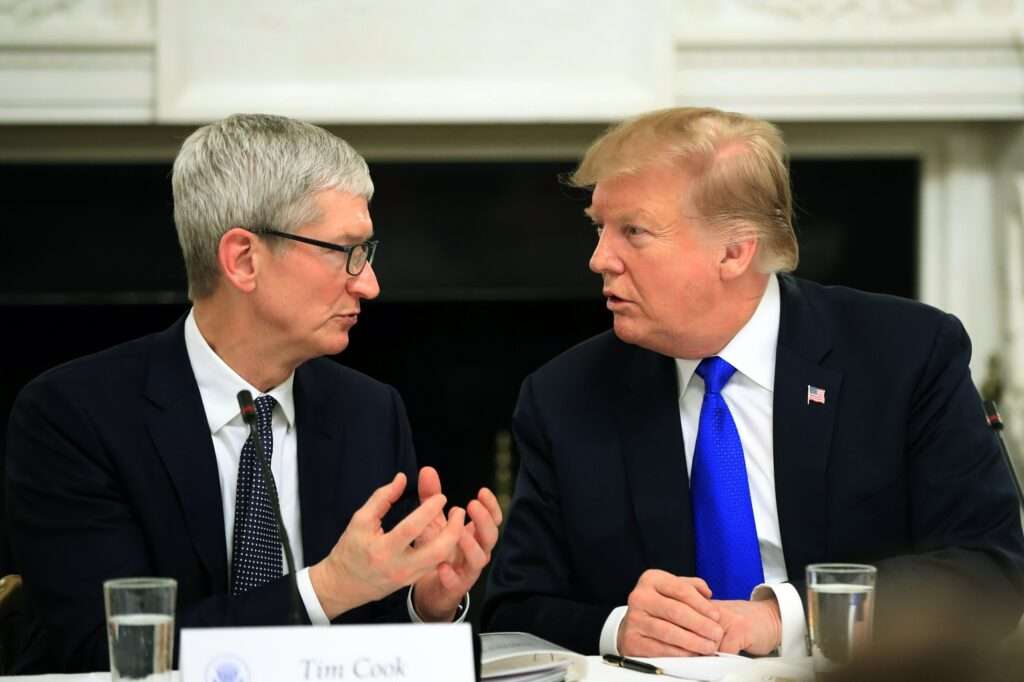Introduction
In a striking statement that has reignited debates over global manufacturing and trade policies, former U.S. President Donald Trump reportedly told Apple CEO Tim Cook, “I don’t want you building in India.” The remark, made during a private meeting, underscores Trump’s long-standing push to bring manufacturing jobs back to the U.S. and reduce reliance on foreign production hubs. The comment has sparked discussions about the future of Apple’s supply chain, U.S.-India trade relations, and the broader implications for global tech manufacturing.
Trump’s America-First Manufacturing Agenda
Donald Trump, a vocal advocate for reshoring industries to the U.S., has consistently pressured major corporations to prioritize American jobs. His latest comments to Cook align with his “America First” policy, which seeks to reduce dependency on countries like China and India for manufacturing. Apple, which has been expanding its production base in India to diversify its supply chain away from China, now faces renewed political pressure.
India has emerged as a critical manufacturing hub for Apple, with suppliers like Foxconn and Tata Electronics scaling up operations to produce iPhones domestically. The Indian government’s production-linked incentive (PLI) scheme has further incentivized tech giants to localize production. However, Trump’s remarks suggest potential friction if he returns to office, possibly complicating Apple’s strategic diversification efforts.
Apple’s India Expansion and Global Supply Chain Shifts
Under Tim Cook’s leadership, Apple has aggressively pursued a “China+1” strategy, reducing its reliance on Chinese manufacturing amid geopolitical tensions and supply chain disruptions. India, with its large workforce and favorable policies, has become a key beneficiary. Apple now manufactures nearly 7% of its iPhones in India, with plans to increase this to 25% by 2025.
Analysts suggest that Trump’s comments could signal future trade policy shifts, including potential tariffs or incentives to force Apple to relocate more production to the U.S. While Apple has invested in American facilities, including a $1 billion Austin campus, high labor costs and infrastructure limitations make large-scale U.S. production challenging.
Implications for U.S.-India Trade Relations
Trump’s stance may also strain U.S.-India economic ties. India has been positioning itself as a reliable alternative to China for Western companies, and any U.S. pushback could slow this momentum. Experts warn that aggressive reshoring policies could lead to retaliatory trade measures, disrupting the delicate balance of global tech supply chains.
Conclusion
Donald Trump’s blunt message to Tim Cook highlights the ongoing tension between corporate globalization and nationalist economic policies. As Apple navigates these complexities, its ability to balance political pressures with operational efficiency will be crucial. For now, Apple’s India expansion continues, but the specter of shifting U.S. trade policies looms large, leaving industry watchers to ponder the future of tech manufacturing in an increasingly polarized world.



